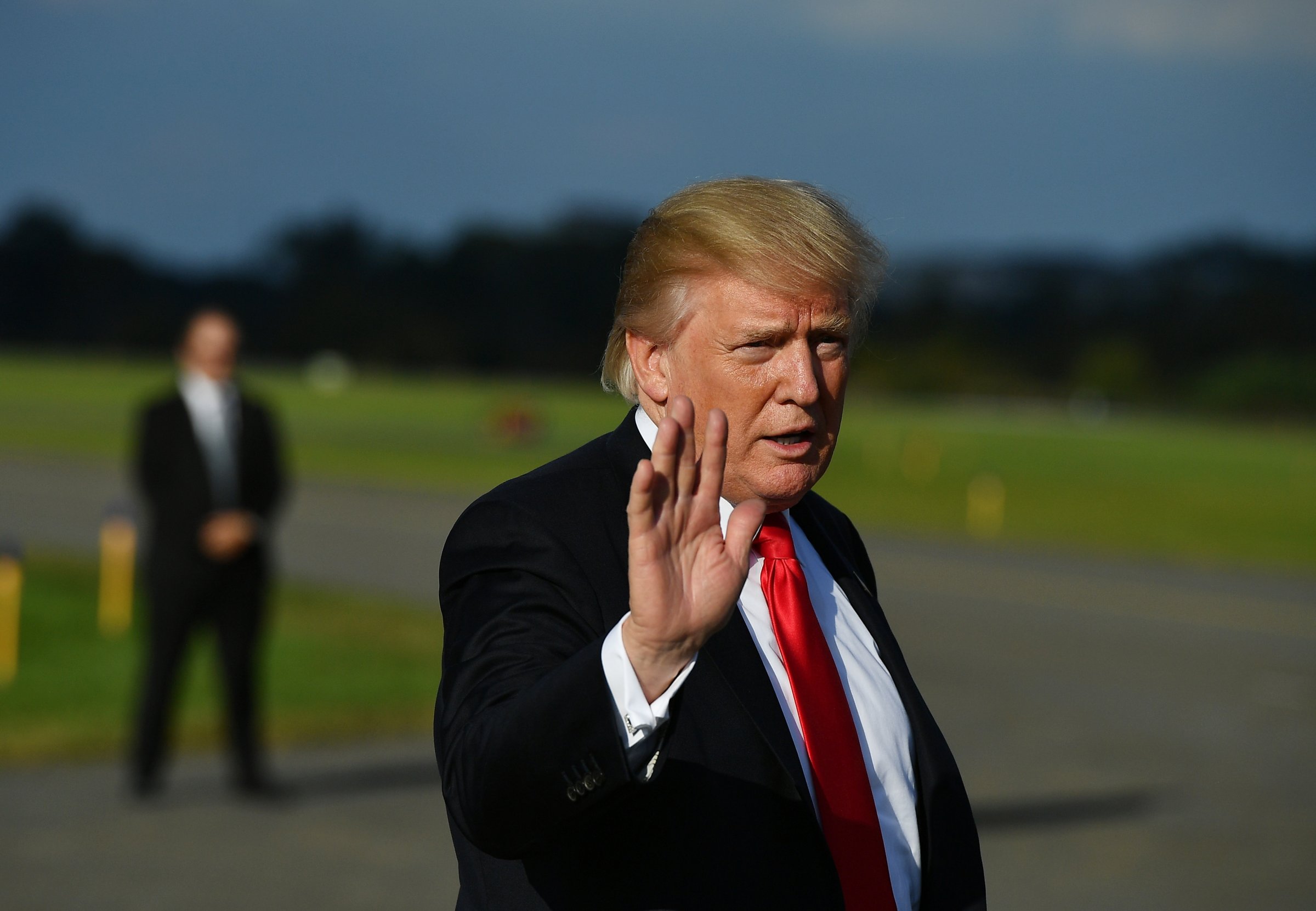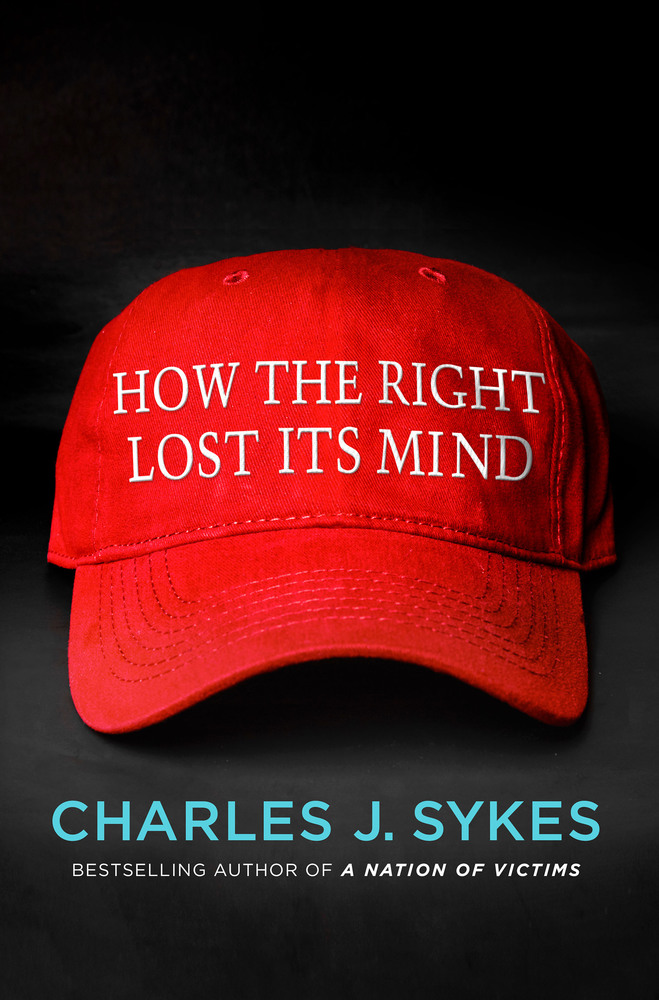
Sykes, a former conservative talk-radio host, is the author of How the Right Lost Its Mind.
Among the many ironies of the conservative implosion was how the Right became what it had once mocked. In 2008, conservatives ridiculed the Left for its adulation of Barack Obama, only to succumb to their own cult of personality eight years later. For years, they scoffed at what Rush Limbaugh called the “low information voters,” only to find out that the conservative base was (as one pundit put it) itself decidedly postliterate.
Polls suggested that as many as seven in ten Republicans doubted Obama’s birth in the United States. A majority thought he was a secret Muslim. This is not to say that the Right had a monopoly on voter ignorance. Surveys have found that only about one third of Americans can even name the three branches of government (executive, legislative, and judiciary). As Ilya Somin, a professor at the George Mason University School of Law, has observed, the problem is not that such knowledge is absolutely essential, it is that “anyone who follows politics even moderately closely is likely to know them.”
As its coverage of the last campaign demonstrated, the mainstream media is complicit in dumbing down the electorate. As recently as 2008, the nightly news programs on the three major networks devoted a grand total of less than four hours of airtime over an entire year to reporting on actual issues (as opposed to candidate speeches or political horse race coverage). By 2016, the Tyndall Report, which monitors networks’ news costs, estimated issue coverage for the year had fallen to just 36 minutes.
The problem here is obvious: An ignorant electorate is not likely to hold ignorant politicians to account.
Even before 2016, some critics accused the GOP of self-consciously dumbing itself down. In Too Dumb to Fail, Matt Lewis charged that conservatism had become “more personal and less principled — more flippant and less thoughtful. It became mean. It became lazy.” As conservatives cultivated their everyman anti-intellectualism, Lewis said, many “deliberately shun erudition, academic excellence, experience, sagaciousness, and expertise in politics.” It had become the party of Sarah Palin . . . and Donald Trump.
There was also a time — before the Age of Twitter — when statesmen actually read books. “The American Founders could have a conversation among themselves,” National Review’s Kevin Williamson wrote, “because they had in the main all consumed the same library of Greek and Roman classics (in the original or in translation), British and Continental literature ranging from fiction to political economy, legal literature, and the like.” This did not lead to uniformity of opinion. “What it ensured was literate and enlightened argument,” noted Williamson. “From the man of many books to the man of one book, we devolved very quickly to the man of one sentence, the paragraph being too demanding and unwieldy a form.”
Television personality Tomi Lahren seemed to embody the unapologetic anti-intellectualism of the new generation of conservative media “thought leaders.” When the 24-year-old Lahren was profiled by the New York Times, she was described as “young, vocal and the right’s rising media star.” But in an interview on The Jamie Weinstein Show podcast, she admitted that she was no Edmund Burke:
I don’t like to read long books. I like to read news. So I couldn’t tell you that there was a book that I read that changed my life. More so, I love to read . . . but I have a very short attention span, so sitting down with a book is very difficult for me.
Her attitude toward reading was, unfortunately, shared by the 45th president of the United States, who has admitted that he has not read any biographies of former presidents. He has no time to read books, he told the Washington Post. “I never have. I’m always busy doing a lot. Now I’m more busy, I guess, than ever before.”

Throughout the campaign there were strained attempts to compare Trump to Ronald Reagan. But although the media often portrayed the Gipper as an amiable dunce, the discovery of the papers that were published in the book Reagan, In His Own Hand forced historians to revise their views of the 40th president. Reagan wrote out many of his radio commentaries and newspaper articles, as well as many of his own speeches. He wrote poetry, short stories, and letters. Trump, in his own hand, writes 140-character tweets.
At one time, the Left had a monopoly not merely of the media and academia, but also of the world of policy think tanks. But the playing field was changed by the development of an intellectual infrastructure — including The Heritage Foundation, the Bradley Foundation, the American Enterprise Institute — that has redefined what was possible for conservatism. It became possible to challenge the Left on policy grounds, win the war of ideas, and win elections.
Throughout 2015–2016, the struggle in the GOP was often characterized as a contest between “outsiders” and the “establishment” or the “elites.” But this was lazy punditry, and missed a larger (and more troubling) development.
There was, of course, justifiable disillusionment with the Washington, D.C., insider/elite who have been co-opted by the beltway culture, but there was something else going on as well: an assault on intellectual traditions of conservative civility. This went beyond candidate Trump’s serial insults of conservatives — Charles Krauthammer was a dummy/loser/clown; George Will was “dopey”; Bill Kristol had “lost all respect”; Rich Lowry was the “worst”; and so on.
Trump’s targets were unusual because they were not politicians or officeholders. But all of them were heirs to the conservative intellectual tradition and a culture that had once placed a value on thoughtfulness, experience, intelligence, and a coherent philosophy of man and his relationship to the state. What we were seeing was, in effect, a repudiation of the conservative mind.
From How the Right Lost Its Mind by Charles J. Sykes. Copyright © 2017 by the author and reprinted with permission of St. Martin’s Press, LLC.
More Must-Reads from TIME
- Why Trump’s Message Worked on Latino Men
- What Trump’s Win Could Mean for Housing
- The 100 Must-Read Books of 2024
- Sleep Doctors Share the 1 Tip That’s Changed Their Lives
- Column: Let’s Bring Back Romance
- What It’s Like to Have Long COVID As a Kid
- FX’s Say Nothing Is the Must-Watch Political Thriller of 2024
- Merle Bombardieri Is Helping People Make the Baby Decision
Contact us at letters@time.com